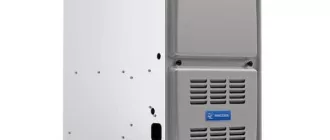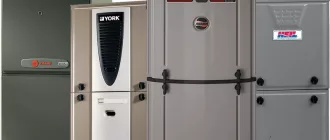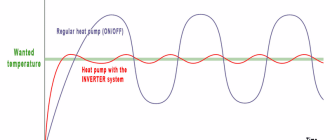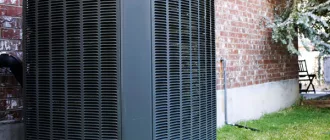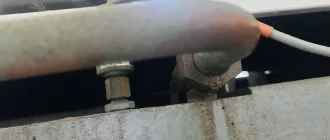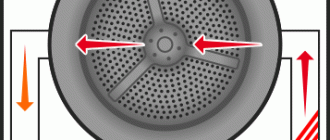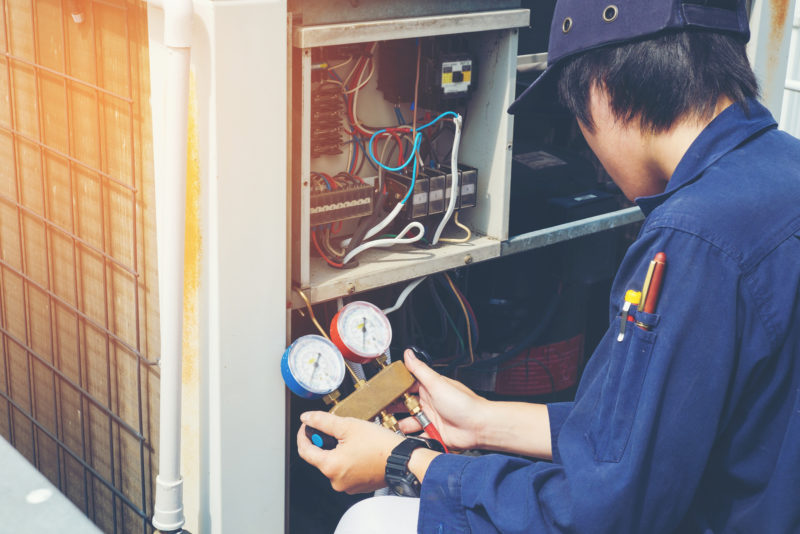
How Often Should You Get HVAC Maintenance?
Regular HVAC maintenance is essential for the efficient and reliable operation of your heating and cooling system. By taking proactive measures to care for your HVAC system, you can extend its lifespan, improve energy efficiency, and prevent costly breakdowns.
So, how often should you get HVAC maintenance? The answer depends on several factors, including the age of your system, the frequency of use, and the manufacturer’s recommendations. Generally, it is recommended to schedule HVAC maintenance at least once a year. This allows a professional technician to inspect your system, clean the components, and identify any potential issues before they become major problems.
However, in some cases, more frequent maintenance may be necessary. For example, if you have an older system or if you use your HVAC system heavily throughout the year, biannual maintenance may be recommended. This will ensure that your system is properly maintained and can handle the demands placed on it.
In addition to regular maintenance, it’s important to keep an eye out for warning signs that may indicate the need for immediate attention. These signs include strange noises, unusual smells, poor airflow, and inconsistent temperatures. If you notice any of these issues, it’s best to schedule a maintenance visit as soon as possible to prevent further damage.
In conclusion, regular HVAC maintenance is crucial for the longevity and efficiency of your system. By following the manufacturer’s recommendations and scheduling annual or biannual maintenance, you can ensure that your HVAC system will continue to keep you comfortable for years to come.
The Importance of Regular HVAC Maintenance Explained by Experts
Regular HVAC maintenance is crucial for the proper functioning and longevity of your heating, ventilation, and air conditioning system. HVAC experts highly recommend scheduling regular maintenance to prevent expensive repairs and ensure the optimal performance of your system.
1. Energy Efficiency: Regular maintenance of your HVAC system helps in maintaining its energy efficiency. When the system is well-maintained, it operates smoothly, using less energy to deliver the desired temperature. This results in lower energy bills and reduced environmental impact.
2. Improved Air Quality: HVAC systems have filters that trap dust, dirt, allergens, and other particles from the air. Over time, these filters can become clogged, leading to poor indoor air quality. Regular maintenance ensures that these filters are clean and functioning properly, resulting in cleaner and healthier air for you and your family.
3. Extended Lifespan: A well-maintained HVAC system lasts longer than one that is neglected. Regular maintenance helps identify and address any potential issues before they turn into major problems. This allows you to extend the lifespan of your HVAC system and avoid costly replacements.
4. Cost Savings: By scheduling regular HVAC maintenance, you can save money in the long run. Small issues can be resolved during maintenance visits before they escalate into expensive repairs. Additionally, a well-maintained system operates more efficiently, reducing your energy bills.
5. Warranty Compliance: Many HVAC manufacturers require regular maintenance to keep the warranty valid. Neglecting maintenance can void your warranty, leaving you responsible for paying for any repairs or replacements out of pocket.
6. Peace of Mind: Regular HVAC maintenance provides peace of mind knowing that your system is working properly. A well-maintained system is less likely to break down suddenly, leaving you without heating or cooling when you need it most.
Conclusion: Regular HVAC maintenance is essential for energy efficiency, improved air quality, extended lifespan, cost savings, and warranty compliance. Don’t overlook the importance of regular maintenance to optimize your HVAC system’s performance and ensure your comfort all year round.
Maximize Efficiency and Save Energy
Regular HVAC maintenance is essential for maximizing efficiency and saving energy. By properly maintaining your heating and cooling system, you can ensure that it operates at peak performance, minimizing energy waste and reducing your utility bills.
Here are some tips to help you maximize efficiency and save energy:
- Schedule regular maintenance: It is recommended to have your HVAC system inspected and serviced by a professional technician at least once a year. This regular maintenance visit will include tasks such as cleaning the coils, checking refrigerant levels, lubricating moving parts, and calibrating thermostats. By addressing any potential issues early on, you can prevent them from turning into major problems that can lead to decreased efficiency.
- Change air filters regularly: Dirty air filters can restrict airflow, causing your HVAC system to work harder and consume more energy. It’s important to check and change your air filters regularly, typically every 1-3 months depending on usage, to ensure proper airflow and maximize efficiency.
- Seal air ducts: Leaky ductwork can result in significant energy loss as conditioned air escapes into unconditioned areas of your home. Inspect your ducts for any leaks or gaps and seal them using foil tape or mastic sealant. This will help to maintain proper airflow and prevent energy waste.
- Utilize programmable thermostats: Installing a programmable thermostat can help you save energy by allowing you to set different temperatures for different times of the day. For example, you can program the thermostat to reduce heating or cooling when you’re away from home or asleep, and then automatically adjust to a comfortable temperature before you return or wake up.
- Keep your HVAC system clean: Dust, dirt, and debris can accumulate on components of your HVAC system, reducing its efficiency. Regularly clean the outdoor condenser unit, remove any debris from the surrounding area, and keep the indoor unit free from dust and obstructions.
By following these tips and investing in regular HVAC maintenance, you can maximize the efficiency of your heating and cooling system, lower your energy consumption, and save money on utility bills. Additionally, a well-maintained HVAC system will have a longer lifespan and require fewer costly repairs in the long run.
Extend the Lifespan of Your HVAC System
Proper maintenance is essential for ensuring the longevity of your HVAC system. By following a few key practices and scheduling regular maintenance appointments, you can extend the lifespan of your HVAC unit and avoid costly repairs or replacements.
Here are some tips to help you extend the lifespan of your HVAC system:
- Change your air filters regularly: Dirty or clogged air filters can restrict airflow, causing your HVAC system to work harder and potentially leading to damage. It’s recommended to change your filters every 1-3 months.
- Keep your outdoor unit clean: Debris such as leaves, grass, or dirt can accumulate around your outdoor unit and hinder its performance. Regularly clean the area around your unit to ensure proper airflow and prevent overheating.
- Monitor and maintain the correct refrigerant levels: If your HVAC system has low refrigerant levels, it can put excessive strain on the compressor and lead to system failure. Regularly check and refill refrigerant levels if necessary.
- Inspect and clean the evaporator and condenser coils: Over time, the coils can become dirty and reduce the efficiency of your HVAC system. Schedule professional coil cleaning to optimize performance and prevent damage.
- Schedule regular professional maintenance: Hiring a licensed HVAC technician for regular maintenance is highly recommended. They can inspect, clean, and tune up your system, identifying any potential issues before they become major problems.
By implementing these practices and staying on top of maintenance, you can extend the lifespan of your HVAC system and ensure it operates efficiently for years to come. Remember, proper maintenance not only saves you money in the long run but also keeps your home comfortable and reduces energy consumption.
|
Improve Indoor Air Quality for a Healthier Environment
Having clean and fresh air inside your home or office is crucial for maintaining good health. Poor indoor air quality can lead to various health issues, such as respiratory problems, allergies, and even serious diseases. To improve the indoor air quality and create a healthier environment, here are some essential steps you can take:
- Keep your space clean: Regularly clean and vacuum your space to remove dust, dirt, and other pollutants that can accumulate over time. Pay attention to areas that tend to collect more dust, such as carpets, rugs, and upholstery. Using a vacuum cleaner with a HEPA filter can help capture smaller particles effectively.
- Control humidity levels: High humidity levels can promote the growth of mold and mildew, which can negatively impact indoor air quality. Use dehumidifiers or air conditioners to keep humidity levels between 30% and 50%. Additionally, fixing any water leaks or sources of moisture can help prevent mold growth.
- Avoid smoking indoors: Smoking indoors not only releases harmful chemicals into the air but also leaves behind lingering odors and particles. Make your home or office a smoke-free environment to maintain better air quality.
- Proper ventilation: Ensure that your space is well-ventilated to allow for the circulation of fresh air. Open windows and doors when weather permits, and use exhaust fans in bathrooms and kitchens to remove moisture and odors. You can also consider installing an air purifier with a HEPA filter to help remove airborne pollutants.
- Regular HVAC maintenance: Schedule regular maintenance for your HVAC system to ensure optimal performance and clean indoor air. Regularly changing air filters and cleaning the ducts can help remove dust, allergens, and other contaminants from the air.
- Use natural cleaning products: Many household cleaning products contain harsh chemicals that can release volatile organic compounds (VOCs) into the air. Opt for natural cleaning products or make your own using ingredients like vinegar, baking soda, and lemon juice.
- Keep plants: Having indoor plants can help improve air quality by absorbing carbon dioxide and releasing oxygen. Some plants, such as snake plants, peace lilies, and spider plants, are known for their ability to filter and purify the air.
- Avoid synthetic fragrances: Synthetic fragrances found in air fresheners, perfumes, and scented candles can release chemicals into the air. Opt for natural scent options or consider using essential oils and diffusers to create a pleasant aroma without the harmful effects.
By implementing these measures, you can significantly improve the indoor air quality and create a healthier environment for you and your loved ones. Remember, clean air is an essential aspect of maintaining overall well-being.
Prevent Costly Breakdowns and Repairs
Regular HVAC maintenance is essential for preventing costly breakdowns and repairs. By scheduling routine maintenance, you can identify and address potential issues before they turn into major problems that require expensive fixes.
During maintenance visits, HVAC technicians thoroughly inspect your system, checking for any signs of wear and tear, leaks, or malfunctioning components. They also clean and lubricate the necessary parts, ensuring smooth operation and optimal performance.
By performing regular maintenance, you can extend the lifespan of your HVAC system. Neglecting to maintain your unit can lead to premature breakdowns and a shortened lifespan, causing you to spend more money on repairs or even replacement.
Regular maintenance not only saves you on costly repairs but can also help reduce your energy bills. When your HVAC system is running efficiently, it uses less energy to heat or cool your home, which translates to lower energy costs. A well-maintained system will also provide better indoor air quality, reducing the risk of health issues caused by poor air circulation or contamination.
To ensure that you stay on top of your HVAC maintenance, it’s recommended to have your system serviced at least once a year, ideally before the start of the heating or cooling season. However, depending on your specific HVAC system and usage, you may need more frequent maintenance visits.
Consider scheduling maintenance checks with a professional HVAC company that offers service contracts. These contracts often include regular inspections and tune-ups, as well as discounted rates on repairs and priority service in case of emergencies.
Remember, preventive maintenance is key to avoiding costly breakdowns and repairs. Investing in regular HVAC maintenance will not only save you money in the long run but also keep your system running efficiently, providing you with a comfortable and healthy living environment.
Ensure Consistent and Reliable Performance
Regular HVAC maintenance is essential to ensure consistent and reliable performance from your system. By scheduling regular maintenance checks, you can identify and address any potential issues before they become major problems, ultimately saving you both time and money in the long run.
During a maintenance visit, a qualified HVAC technician will perform a thorough inspection of your system, checking for any signs of wear and tear or potential malfunctions. They will also clean and lubricate all moving parts, replace any worn-out filters, and ensure that all electrical connections are secure.
By regularly maintaining your HVAC system, you can enjoy several benefits:
- Improved Energy Efficiency: Regular maintenance will help your HVAC system operate at its maximum efficiency, reducing energy consumption and saving you money on utility bills.
- Extended Lifespan: Proper care and maintenance can prolong the lifespan of your HVAC system, helping you avoid premature system failure and expensive repairs or replacements.
- Better Indoor Air Quality: Clean filters and properly functioning components will help improve the air quality in your home, reducing the risk of respiratory issues and allergies.
- Reduced Risk of Breakdowns: Regular maintenance can help identify and address any potential issues before they lead to a complete system breakdown, ensuring reliable performance during extreme weather conditions.
In addition to scheduling regular maintenance visits with a professional HVAC technician, there are also some steps you can take as a homeowner to ensure the consistent and reliable performance of your system:
- Regularly check and replace air filters, as dirty filters can obstruct airflow and reduce system efficiency.
- Keep the outdoor unit free from debris such as leaves, grass, and branches to prevent airflow restrictions.
- Ensure that all vents and registers are unobstructed and free from dust and debris.
- Set your thermostat to a reasonable temperature and avoid frequent adjustments, as excessive temperature fluctuations can put additional strain on your system.
By following these maintenance tips and scheduling regular professional inspections, you can ensure consistent and reliable performance from your HVAC system, keeping your home comfortable all year round.
Keep Warranty Valid and Intact
Regular HVAC maintenance is important not just for the efficient operation of your system, but also for keeping your warranty valid and intact. Most HVAC manufacturers require annual maintenance to be performed by a licensed professional in order for the warranty to remain valid.
If you fail to have your HVAC system regularly maintained, you may find yourself in a difficult situation if a major repair is needed. Without proof of annual maintenance, the manufacturer may deny your warranty claim and you could be left responsible for expensive repair costs.
By scheduling regular HVAC maintenance, you ensure that your system is being properly cared for according to the manufacturer’s guidelines. This includes cleaning and inspecting various components, lubricating moving parts, checking electrical connections, and more. These routine maintenance tasks help prevent wear and tear, catch potential issues before they become major problems, and keep your system running smoothly.
Additionally, regular maintenance allows licensed professionals to identify and address any issues that could void your warranty. For example, if you attempt to make repairs or modifications yourself, or if you hire an unlicensed contractor to work on your system, your warranty could be considered void.
If you’re unsure about the specific maintenance requirements outlined in your warranty, be sure to read through the documentation or contact the manufacturer directly. They will be able to provide you with the necessary information and recommend a maintenance schedule that keeps your warranty valid and protects your investment.
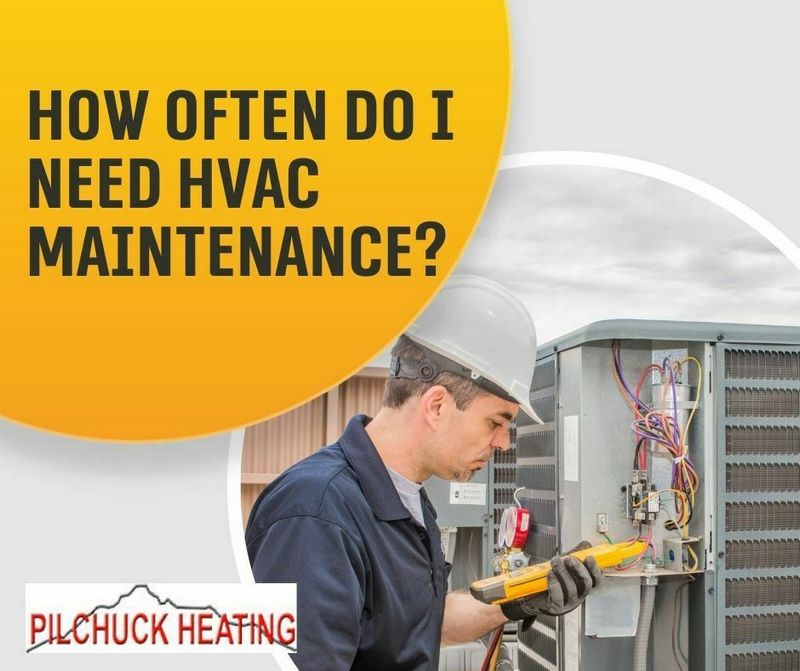
Reduce the Risk of Carbon Monoxide Leaks
Carbon monoxide (CO) is a colorless, odorless gas that can be extremely dangerous if leaked into your home. It is produced when fossil fuels, such as gas, oil, coal, or wood, do not burn completely. Breathing in carbon monoxide can lead to poisoning, which can cause symptoms ranging from headaches and dizziness to nausea, confusion, and even death.
To reduce the risk of carbon monoxide leaks in your HVAC system, it is important to take the following precautions:
- Install carbon monoxide detectors: Install carbon monoxide detectors on every level of your home, especially near bedrooms. These detectors can alert you if levels of carbon monoxide become dangerous. Be sure to test the detectors regularly and replace their batteries as needed.
- Have your HVAC system inspected: Regular maintenance and inspections of your HVAC system can help identify any potential issues that could lead to carbon monoxide leaks. A professional HVAC technician can perform a thorough inspection, clean the system, and ensure that all connections and vents are properly secured.
- Check for proper ventilation: Ensure that your HVAC system is properly ventilated. Blocked or clogged vents can cause carbon monoxide to build up and enter your living spaces. Regularly inspect and clean vents and chimneys to prevent any blockages.
- Avoid using fuel-burning appliances in enclosed spaces: Fuel-burning appliances such as generators, grills, and stoves can produce carbon monoxide. It is important to use these appliances in well-ventilated areas and avoid using them indoors or in enclosed spaces.
- Never ignore signs of a carbon monoxide leak: If you notice symptoms such as headaches, dizziness, nausea, or confusion, or if your carbon monoxide detector goes off, evacuate your home immediately. Call emergency services and seek medical attention if necessary.
By following these precautions and staying vigilant, you can reduce the risk of carbon monoxide leaks in your HVAC system and keep your home safe for you and your family.
Maintain Optimal Comfort Levels in Your Home
When it comes to the comfort of your home, your HVAC system plays a vital role. A well-maintained system can ensure that your home is always at an optimal temperature, providing you with a cozy and comfortable environment throughout the year.
Here are some tips to help you maintain optimal comfort levels in your home:
- Schedule regular HVAC maintenance: Regular maintenance is crucial to keep your HVAC system running smoothly. It is recommended to have a professional technician inspect and clean your system at least once a year. This can help identify any potential issues and prevent costly breakdowns.
- Change air filters regularly: Air filters should be replaced every 1-3 months, depending on the type of filter and the level of dust and debris in your home. Clean filters ensure proper airflow, improve indoor air quality, and prevent strain on your system.
- Keep coils clean: Dirty coils can hinder your HVAC system’s performance. Regularly clean the coils to remove dust, dirt, and debris. This can help your system operate efficiently and effectively.
- Ensure proper insulation: Insufficient insulation can lead to energy loss, uneven heating or cooling, and uncomfortable indoor temperatures. Check for any gaps or leaks in your home’s insulation and seal them to maintain optimal comfort levels.
- Program your thermostat: A programmable thermostat allows you to set different temperatures for different times of the day. By adjusting the temperature according to your schedule, you can maximize comfort and save energy.
By following these tips, you can ensure that your HVAC system is well-maintained and functioning optimally, providing you with the comfort you desire in your home. Remember to consult with a professional HVAC technician for any specific maintenance recommendations based on your system’s requirements.
Enhance the Efficiency of Your Heating and Cooling
Proper maintenance of your heating and cooling system is essential to ensure its efficiency and prolong its lifespan. Regular maintenance not only keeps your HVAC system running smoothly but also helps you save on energy costs. Here are some tips to enhance the efficiency of your heating and cooling:
- Schedule regular HVAC maintenance: It is recommended to schedule professional HVAC maintenance at least twice a year. This includes thorough cleaning, inspection, and lubrication of system components. Regular maintenance can prevent breakdowns, identify potential issues, and improve overall efficiency.
- Clean or replace air filters: Dirty air filters can obstruct airflow and force your HVAC system to work harder. Cleaning or replacing air filters regularly can improve airflow, enhance indoor air quality, and reduce energy consumption.
- Keep vents and registers clear: Ensure that vents and registers are not blocked by furniture, curtains, or other objects. Blocking vents can disrupt airflow and cause uneven cooling or heating throughout your home.
- Seal air leaks: Inspect windows, doors, and ductwork for any air leaks. Sealing these leaks prevents conditioned air from escaping, improves energy efficiency, and reduces energy waste.
- Invest in a programmable thermostat: A programmable thermostat allows you to set different temperature settings for different times of the day. This helps optimize energy usage, as you can automatically adjust the temperature when you’re away from home.
- Ensure proper insulation: Good insulation helps maintain a consistent indoor temperature and minimizes the workload on your HVAC system. Make sure your home is properly insulated, especially in attics, walls, and basements.
- Keep the outdoor unit clean: Clear away debris, leaves, and dirt from the outdoor unit regularly. A clean outdoor unit ensures proper airflow and prevents damage to the system.
- Avoid excessive heating or cooling: Avoid setting your thermostat to extreme temperatures. Instead, find a comfortable temperature range that doesn’t strain your HVAC system. Lowering your thermostat in the winter and raising it in the summer can save energy.
- Consider regular duct cleaning: Over time, dust, dirt, and debris can accumulate in your ductwork, obstructing airflow and reducing efficiency. Having your ducts professionally cleaned every few years can improve indoor air quality and help your HVAC system work more efficiently.
- Stay informed and consult professionals: Keep yourself updated on HVAC maintenance tips and consult with HVAC professionals for expert advice tailored to your specific system and needs.
By following these tips and investing in regular maintenance, you can enhance the efficiency of your heating and cooling system, save on energy costs, and enjoy a comfortable indoor environment year-round.
Identify and Resolve Potential Issues Early
Regular HVAC maintenance not only ensures the optimal performance of your system but also helps to identify and resolve potential issues early. By schedule routine maintenance service, you can catch small problems before they turn into major expensive repairs or system failures.
During the maintenance visit, a trained HVAC technician will inspect all components of your system, including the air conditioner, furnace, heat pump, ductwork, and thermostat. They will check for any signs of wear and tear, leaks, or malfunctions.
Here are some common issues that can be identified and resolved during HVAC maintenance:
- Dirty filters: A clogged or dirty air filter can restrict airflow and reduce the efficiency of your system. During maintenance, the technician will replace or clean the filters, ensuring proper airflow and preventing strain on the system.
- Leaking ductwork: Leaky ducts can cause energy loss and decrease the efficiency of your HVAC system. By inspecting the ductwork, the technician can identify any leaks and seal them, improving energy efficiency and reducing utility bills.
- Refrigerant leaks: Low refrigerant levels can lead to poor cooling performance and put excess strain on the system. During maintenance, the technician will check the refrigerant levels and identify any leaks. They will then repair the leaks and recharge the system if necessary.
- Worn-out components: Over time, various components of your HVAC system may wear out or become damaged. During maintenance, the technician will inspect these components, such as belts, motors, and electrical connections, and replace or repair them if needed. This helps to prevent unexpected breakdowns and extends the lifespan of your system.
By identifying and resolving these potential issues early, you can avoid costly repairs and ensure that your HVAC system operates efficiently, saving you money on energy bills. Additionally, regular maintenance helps to maintain good indoor air quality, as clean filters and a well-functioning system can effectively remove dust, pollen, and other pollutants from the air.
Overall, scheduling regular HVAC maintenance allows you to address minor issues before they become major problems. It is recommended to have maintenance performed at least once a year, ideally before the start of the cooling and heating seasons, to ensure optimal performance and longevity of your HVAC system.
Save Money on Energy Bills
One of the biggest expenses for homeowners is their energy bills. However, you can save money by following some simple tips and practices. Here are some ways to reduce your HVAC related energy costs:
- Regular HVAC Maintenance: Getting regular maintenance for your HVAC system is essential to keep it running efficiently. Regular maintenance can help identify any issues and fix them before they become costly problems. It can also improve the energy efficiency of your system, reducing energy consumption and lowering your bills.
- Change Air Filters: Regularly changing your air filters is an easy and inexpensive way to improve the efficiency of your HVAC system. Dirty and clogged filters restrict airflow, making your system work harder and use more energy.
- Smart Thermostat: Installing a smart thermostat allows you to control your HVAC system more effectively. You can set schedules to adjust the temperature based on your needs and preferences. This can help you avoid unnecessary heating or cooling when you’re not at home, saving energy and money.
- Seal Air Leaks: Inspect your home for air leaks around windows, doors, and other openings. Seal any gaps or cracks using caulk or weatherstripping. By preventing drafts and air leaks, you can reduce the workload on your HVAC system and decrease energy consumption.
- Proper Insulation: Make sure your home is properly insulated to prevent heat loss during winter and heat gain during summer. Good insulation helps maintain a stable indoor temperature, reducing the need for your HVAC system to work harder and consume more energy.
- Use Ceiling Fans: Ceiling fans can help circulate air and create a breeze, making you feel cooler. By using ceiling fans in conjunction with your HVAC system, you can set your thermostat a few degrees higher without sacrificing comfort. This can result in significant energy savings.
- Programmable Timers: Install programmable timers for your lights and other electronics. This way, you can avoid leaving them on when they’re not needed, reducing your energy consumption.
- Energy-Efficient Appliances: Consider replacing old, energy-consuming appliances with newer, energy-efficient models. Look for appliances with ENERGY STAR® ratings, as they meet strict energy efficiency guidelines.
By implementing these strategies and being mindful of your energy consumption, you can significantly reduce your energy bills and save money in the long run. Not only will you have a more efficient HVAC system, but you’ll also contribute to a greener and more sustainable environment.
Avoid Expensive Emergency HVAC Expenses
Regular maintenance of your HVAC system is crucial to its optimal functioning and longevity. By investing in regular maintenance, you can avoid expensive emergency repairs and replacements in the future.
Why is regular maintenance important?
- Prevention of system breakdowns: Regular maintenance helps identify potential issues before they turn into major problems. By proactively addressing any minor issues, you can prevent your HVAC system from breaking down unexpectedly.
- Improved energy efficiency: A well-maintained HVAC system operates more efficiently, reducing your energy consumption and lowering your utility bills. By cleaning filters, checking ductwork, and ensuring proper airflow, you can optimize your system’s efficiency.
- Extended system lifespan: Routine maintenance can help extend the lifespan of your HVAC system. By keeping all components clean, lubricated, and in good condition, you can reduce wear and tear, prolonging the life of your system.
What does regular maintenance entail?
Regular maintenance involves various tasks that should be performed at least once or twice a year. These tasks may include:
- Cleaning or replacing air filters
- Checking and adjusting thermostat settings
- Inspecting and cleaning evaporator and condenser coils
- Lubricating moving parts
- Tightening electrical connections
- Checking refrigerant levels
- Inspecting and cleaning ductwork
- Testing system controls and safety switches
How to schedule regular maintenance?
It is best to hire a professional HVAC technician to perform regular maintenance on your system. They have the expertise and equipment needed to inspect, clean, and tune up your system effectively. Many HVAC companies offer maintenance plans that include scheduled visits and discounts on repairs.
By investing in regular HVAC maintenance, you can avoid expensive emergency HVAC expenses. Keep your system in optimal condition to enjoy reliable performance, improved efficiency, and lower long-term costs.
Improve Overall System Safety
Regular HVAC maintenance not only helps to keep your system running efficiently but also plays a crucial role in improving overall system safety. Here are some key reasons why regular maintenance is essential for ensuring a safe HVAC system:
- Prevent potential hazards: During routine maintenance, HVAC technicians inspect various components of your system to identify and address any potential hazards. They check for issues such as leaks, loose electrical connections, faulty wiring, and gas leaks, which can all pose serious safety risks if left unattended.
- Ensure proper ventilation: Adequate ventilation is vital for maintaining a safe indoor environment. Regular HVAC maintenance includes cleaning and inspecting air ducts, filters, and vents to ensure proper airflow and ventilation. This helps prevent the buildup of contaminants, mold, and other allergens that can negatively impact indoor air quality.
- Prevent carbon monoxide leaks: Carbon monoxide (CO) is a colorless, odorless gas that can be produced by malfunctioning HVAC systems. Regular maintenance includes inspecting and cleaning the system’s combustion chamber, burners, and exhaust flue to prevent carbon monoxide leaks. By identifying any potential issues early on, homeowners can avoid the risk of CO poisoning.
Additionally, routine maintenance helps ensure that smoke detectors and carbon monoxide alarms connected to the HVAC system are functioning correctly, providing an additional layer of safety.
By investing in regular HVAC maintenance, homeowners can significantly reduce the risk of system malfunctions, improve indoor air quality, and enhance overall system safety. It is recommended to schedule professional maintenance service at least once a year, ideally before the start of the heating or cooling season, to ensure optimal performance and safety.
Increase the Resale Value of Your Home
When it comes to selling your home, maximizing its resale value is often a top priority. Making improvements and upgrades to your property can not only attract more potential buyers but also increase your chances of getting a higher offer. One area that can have a significant impact on the value of your home is the HVAC system.
An efficient and well-maintained HVAC system is a desirable feature for homebuyers, as it provides comfort and energy efficiency. Here are a few ways in which you can increase the resale value of your home by investing in your HVAC system:
- Regular Maintenance: Scheduling regular maintenance for your HVAC system is essential. This includes professional inspections, cleaning, and tune-ups. Regular maintenance helps ensure that your system is running at its best, reducing the risk of breakdowns and extending its lifespan. Potential buyers will be more attracted to a home with a well-maintained HVAC system.
- Energy Efficiency: Upgrading to energy-efficient HVAC equipment can make your home more desirable to potential buyers. Energy-efficient systems can help lower utility bills and reduce the home’s environmental impact. Consider investing in a high-efficiency HVAC system, such as a variable-speed air conditioner or a smart thermostat, to attract eco-conscious buyers.
- Improved Indoor Air Quality: Indoor air quality is becoming an increasingly important factor for homebuyers. Investing in air purifiers, dehumidifiers, and ventilation systems can improve the indoor air quality of your home, making it more appealing to potential buyers, especially those with allergies or respiratory conditions.
- Documentation: Keep a record of all HVAC maintenance and repairs, including receipts and warranty information. This documentation shows potential buyers that you have taken good care of your HVAC system and provides them with peace of mind knowing that they won’t have to spend a significant amount on repairs or replacements soon after purchasing the home.
In addition to these HVAC-related strategies, it’s also essential to focus on other aspects of your home’s curb appeal and functionality. Investing in landscaping, interior updates, and energy-efficient windows and insulation can further increase the resale value of your home. Remember to research the market and consult with real estate professionals to determine which upgrades will provide the most significant return on investment for your specific location.
By properly maintaining your HVAC system and making strategic upgrades, you can increase the resale value of your home and attract potential buyers. A well-maintained, energy-efficient, and comfortable home will not only help you sell your property faster but also ensure a higher selling price.
Maintain a Properly Functioning HVAC System for Year-Round Comfort
Maintaining your HVAC system is essential for ensuring year-round comfort in your home or office. Regular maintenance can help prevent breakdowns, improve energy efficiency, and extend the lifespan of your HVAC equipment. By following a few simple steps, you can keep your HVAC system running smoothly and avoid costly repairs.
- Change Air Filters: One of the easiest and most effective ways to maintain your HVAC system is by regularly changing the air filters. Dirty or clogged filters can restrict airflow and reduce the efficiency of your system. Check your filters every month and replace them as needed.
- Keep Outdoor Unit Clean: The outdoor unit of your HVAC system can accumulate dirt, leaves, and other debris over time. This debris can obstruct airflow and reduce the system’s efficiency. To prevent this, make sure to keep the area around the outdoor unit clean and free from any obstructions.
- Schedule Professional Inspections: While regular maintenance tasks can be done by the homeowner, it’s important to have a professional HVAC technician inspect your system at least once a year. They can identify any potential issues and perform necessary repairs or adjustments to keep your system running efficiently.
- Check and Clean Condenser Coils: The condenser coils in your outdoor unit can become dirty or covered in debris, which can hinder heat transfer and reduce the system’s efficiency. Regularly inspect the coils and clean them if necessary.
- Maintain Proper Ventilation: Adequate ventilation is essential for the optimal performance of your HVAC system. Ensure that all vents and registers are clear of obstructions and that airflow is not being restricted in any way.
By following these maintenance steps, you can ensure that your HVAC system operates efficiently, providing you with the desired cooling or heating, and maintaining a comfortable indoor environment throughout the year. Don’t overlook the importance of regular maintenance, as it can save you money in the long run by preventing costly repairs and increasing the lifespan of your HVAC equipment.
Q&A:
How often should I get HVAC maintenance?
According to experts, it is recommended to get HVAC maintenance twice a year – once in the spring before the cooling season and once in the fall before the heating season.
What are the benefits of regular HVAC maintenance?
Regular HVAC maintenance has several benefits. It helps improve energy efficiency, extends the lifespan of the system, improves indoor air quality, and reduces the likelihood of breakdowns and costly repairs.
What does HVAC maintenance include?
HVAC maintenance typically includes cleaning the system, lubricating moving parts, inspecting and changing filters, checking and tightening electrical connections, and testing the system for proper functioning.
Can I do HVAC maintenance myself, or should I hire a professional?
While there are certain maintenance tasks that homeowners can do themselves, such as regularly changing filters, it is generally recommended to hire a professional for HVAC maintenance. Professionals have the expertise and tools needed to properly inspect and maintain the system.

